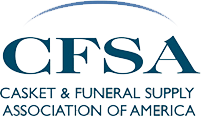Excerpt from Funeral Service Insider (www.funeralserviceinsider.com).

People over the age of 50 increasingly value being in charge, which is why English says, “If I leave you with just one takeaway, it would be this: People value having control over their decision making, and that is throughout the entire life cycle…”
Family dynamics are also changing—and they’ll continue to change, English says. “More and more older people are facing the end of life without spouses or children,” English says. “The share of adults who have never married is at an all-time high, and it is increasing. Millennials are marrying at a lower rate than baby boomers…what does that mean to your industry?”
When done right, funeral service can play a critical part in that life cycle, English says. “People deserve to have options and to have their values respected: the service you provide can be the graceful finale to a seamless journey through the whole system of care.”
Funeral professionals would be wise to listen to English: The AARP has 38 million members, and if its president is emphasizing empowerment, you can bet that theme is one that its members are on board with…”
As people go through life’s transitions, they want transitions to be seamless—and they also want their wishes to be honored at every stage, English says.
“Choice is a way that people get and remain empowered,” English says. “We are talking about all stages of life, including the very end…”
Funeral professionals can play an important role in helping people manage their end-of-life care, English says. “Those of you in this room have a profoundly important role to play in supporting consumer choice and affirming personal priorities,” English says.


